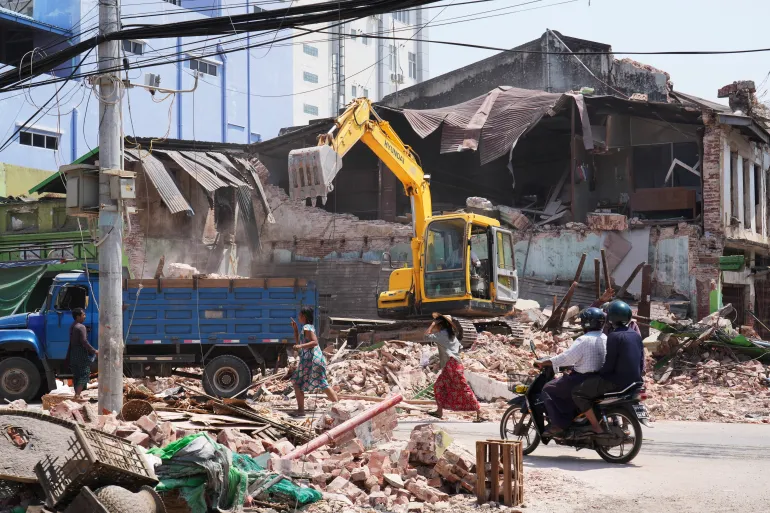Myanmar military government has declared a temporary ceasefire in the country’s ongoing civil war to facilitate rescue operations after a devastating earthquake that struck last week. The earthquake’s death toll has now surpassed 3,000, with more than 4,500 people reported injured, according to state television MRTV.
The ceasefire, which will last from Wednesday until April 22, is intended to ease the delivery of earthquake relief efforts. The military government’s announcement came after similar ceasefire declarations from armed resistance groups opposing the military’s rule. The military warned these groups not to use the ceasefire for regrouping or any other offensive action, with the promise of “necessary” measures if violated.
The tragedy also affected neighboring Thailand, where 22 people have died, and hundreds of buildings have been damaged. The quake’s aftermath is compounded by the challenges of providing aid in a conflict zone. In a tense moment, the military fired warning shots at a Chinese Red Cross convoy that had failed to stop in a conflict area. Fortunately, the convoy and its rescue teams remained unharmed, and China urged all parties in Myanmar to prioritize humanitarian efforts.
The military’s handling of the country since the coup in 2021 has left Myanmar in disarray, with the economy and essential services, including healthcare, severely impacted. The United Nations has stepped in, allocating $12 million in emergency funding for relief efforts such as food, water, shelter, and mental health support. Despite ongoing rescue efforts, most teams are only finding bodies, with some survivors rescued from the rubble five days after the earthquake.
Humanitarian organizations, including Human Rights Watch, have criticized the military government for impeding the access of aid agencies. They have called on Myanmar’s junta to allow unrestricted access for humanitarian aid to reach all affected regions, particularly those controlled by armed resistance groups. Human Rights Watch also emphasized the importance of providing assistance through independent organizations rather than relying solely on military authorities.


Comments are closed, but trackbacks and pingbacks are open.